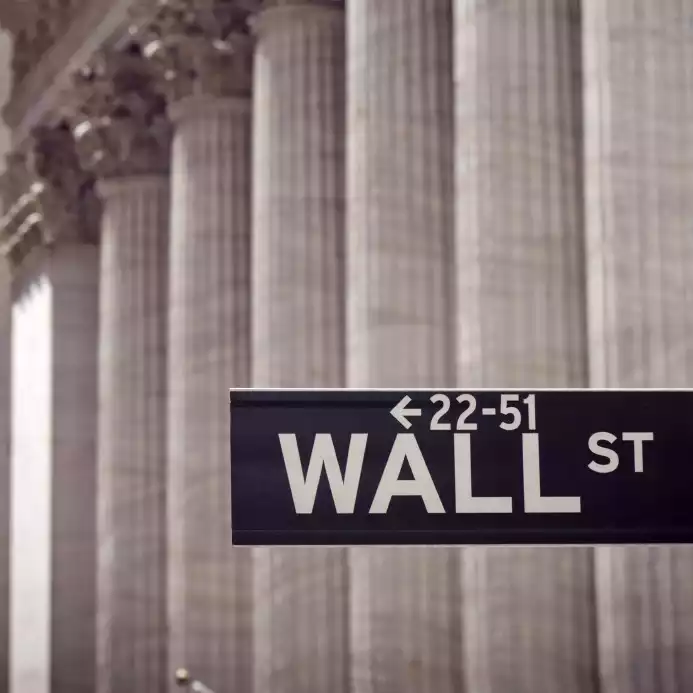Introduction:
Recently, corporations have increasingly sought to align themselves with social justice causes, often referred to as "woke" initiatives. However, these efforts sometimes backfire spectacularly, resulting in "Corporate Woke Fails." These fails not only generate backlash but also lead to significant financial losses for the companies involved. Let's delve into 10 of the biggest corporate woke fails, where the bottom line suffered amidst attempts at social activism.
1. Disney's "Eternals" Backlash
Disney's big-budget gamble with "Eternals" turned into a major disappointment. Despite bringing together a talented cast and pouring in a lot of money, the film just didn't connect with audiences at the box office. According to Forbes, this misstep ended up costing Disney a whopping $52.6 million in losses. It seems like the focus on Diversity, Equity, and Inclusion (DEI) themes in the movie overshadowed the storytelling, leaving viewers feeling disconnected and uninterested.
The film's failure serves as a cautionary tale for other studios about the importance of finding the right balance between social messaging and entertainment value. While promoting diversity and inclusion is crucial, it's equally important not to sacrifice the quality of storytelling and audience engagement. Disney's stumble with "Eternals" highlights the potential risks of prioritizing DEI themes over compelling narratives, ultimately leading to significant financial repercussions for the entertainment giant.
Moving forward, it's likely that studios will take a more cautious approach to integrating social messages into their films, ensuring that they resonate with audiences while still staying true to their creative vision. Disney's experience with "Eternals" underscores the need for a more nuanced and balanced approach to diversity and inclusion in filmmaking, one that prioritizes both cultural representation and audience satisfaction to avoid similar financial setbacks in the future.
The controversy surrounding "Eternals" also brought attention to the issue of pronoun usage, as some viewers criticized the film for its handling of gender identity. Additionally, the film's release inadvertently attracted the attention of neo-Nazis, further complicating its reception and contributing to its financial losses.
2. Amazon's Antitrust Lawsuit
Amazon took a significant hit as the Federal Trade Commission and 17 states filed a lawsuit against the e-commerce giant. According to Investors Business Daily, the lawsuit alleged that Amazon manipulated its market dominance to inflate prices and overcharge merchants, utilizing unfair tactics to maintain monopoly power. Among the allegations were anti-discounting measures that penalized sellers for offering prices lower than Amazon's.
This legal action didn't come out of the blue. Before the lawsuit's announcement, Amazon's shares were already on a downward trajectory. Nevertheless, the lawsuit dealt a harsh blow to Amazon's stock, which plummeted 4% in response to the news, closing at 125.98 and dipping below the key 50-day moving average.
The lawsuit underscored the mounting challenges Amazon faces regarding antitrust regulation and highlighted the potential risks associated with its business strategies. This development cast a shadow on Amazon's market dominance and pricing strategies, amplifying concerns among investors and stakeholders alike.
3. Hollywood's Obi-Wan Kenobi TV Series Controversy
Hollywood's highly anticipated Obi-Wan Kenobi TV series stirred up a storm in the entertainment world. Despite the excitement surrounding the Star Wars franchise, which includes video games, the show faced criticism for its portrayal of transgender characters. Many viewers felt that the representation lacked authenticity and sensitivity.
The controversy surrounding the TV series escalated when full video clips surfaced online, showcasing scenes deemed offensive by the transgender community. This prompted a sharp divide among audiences, with some defending the show's creative choices while others called for accountability and better representation.
As a result of the backlash, the Obi-Wan Kenobi TV series saw a noticeable decline in ratings and audience reception. Rotten Tomatoes reviews reflected this divide, with scores fluctuating between praise and condemnation. The controversy serves as a wake-up call for Hollywood, highlighting the importance of thoughtful and inclusive storytelling in today's media landscape, especially when dealing with sensitive topics like transgender representation in popular franchises like Star Wars.
4. CNN Losing Viewers and Woke Credentials
According to Daily Mail Online, CNN, a prominent news network known for its progressive stance, faced a significant challenge as its viewership plummeted by a staggering 61%. Amidst declining ratings, CNN's executives grappled with the fallout, with some calling for patience while others sought to address the network's perceived loss of "woke" credentials.
The decline in viewership came at a time when the network's coverage was heavily focused on democratic agendas and the presidency of Joe Biden. However, despite efforts to align with progressive values, CNN's audience dwindled, signaling a disconnect between the network's messaging and the sentiments of everyday Americans.
The sharp decline in viewership represented a substantial loss for CNN, both in terms of advertising revenue and influence. As the network attempted to regain its footing and re-establish its connection with viewers, it faced the challenge of striking a balance between its commitment to progressive ideals and the need to appeal to a broader audience of Americans.
5. The Fall of Sean 'Diddy' Combs
Sean "Diddy" Combs, known for his savvy business moves, aimed to embrace woke culture with his digital media company, Revolt. However, according to The Guardian, in November 2023, Sean "Diddy" Combs had to step down from the role of chairman at Revolt due to various assault lawsuits. These allegations have caused damage to Diddy's reputation, hurt the Revolt's network image, and made it impossible to attract viewers and advertisers.
As companies distanced themselves from Revolt, citing concerns over its commitment to diversity, the media company saw its revenue streams dwindle. This loss of support not only tarnished Revolt's reputation but also took a toll on its bottom line, resulting in a significant drop in the company's overall value.
The incident serves as a stark reminder that authenticity and accountability are crucial in today's socially conscious landscape. For Sean "Diddy" Combs and Revolt, the misstep highlighted the importance of aligning actions with values, as failing to do so can have substantial financial repercussions. It's a lesson learned the hard way, emphasizing the need for genuine commitment to diversity and inclusion in corporate culture.
6. Snow White Slip-Up
Disney's decision to reimagine "Snow White" without fixing its controversial parts stirred up a lot of trouble. People talked about it everywhere on different media platforms. Many said Disney could've made the old story better by being more respectful of different cultures. Because Disney didn't do that, a group of people got mad, leading to boycotts and bad press.
According to The Princess Blog, critics pointed out how Disney missed the mark in updating "Snow White" for today's audience. The lack of acknowledgment and rectification of problematic aspects in the story drew sharp criticism, intensifying the public outcry. This led to Disney losing a lot of money in merchandise sales and fewer people coming to their theme parks.
7. California's CRT Curriculum Clash
California's decision to introduce Critical Race Theory (CRT) into K-12 education stirred up a storm. Parents and lawmakers alike slammed the move, sparking heated debates across the state. This controversy spilled over into legal battles and public protests, creating a tense atmosphere. As tensions escalated, school districts found themselves caught in the crossfire. Budgets were slashed, and federal funding dried up, leaving schools with financial strain.
Moreover, the debate surrounding CRT was fueled by a house bill introduced by state legislators, further intensifying the conflict. According to a report by CRT Law, Florida Governor DeSantis took a stand against CRT, aligning himself with former President Trump's stance. The clash of ideologies between states like California and leaders like DeSantis further fueled the debate, highlighting the deep divide on issues of race and education in America.
8. NBC's Cancel Culture Conundrum
NBC's swift decision to cancel the "Golden Globes" amidst allegations of corruption within the Hollywood Foreign Press Association (HFPA) backfired when advertisers pulled out en masse. According to a report by The New York Times in January 2023, the cancellation was followed by a significant decline in viewership, exacerbating the financial fallout for the network. As viewers tuned out in response to the controversy, advertisers became hesitant to invest in advertising slots during the event, resulting in a staggering loss in advertising revenue for NBC.
The New York Times article highlighted how the cancellation of the "Golden Globes" contributed to a broader trend of declining viewership for award shows, reflecting shifting audience preferences and concerns over ethical integrity in the entertainment industry. This decline in viewership not only impacted NBC's immediate financial standing but also raised questions about the long-term viability of traditional award show formats in an increasingly digital and socially conscious landscape.
In addition to the financial implications, NBC's decision to cancel the "Golden Globes" tarnished its reputation as a leader in entertainment broadcasting. The network's failure to address the underlying issues within the HFPA and its handling of the situation raised doubts among viewers and advertisers about its commitment to transparency and ethical standards. Moving forward, NBC faced the daunting task of rebuilding trust with its audience and advertisers, emphasizing the importance of integrity and accountability in the pursuit of sustainable success in the media industry.
9. Spotify's Podcast Content Controversy
Spotify, a major player in the podcasting world, faced a significant challenge regarding its content policies. On one side, there was pressure from employees and creators advocating for stricter regulations to combat misinformation. This led to the removal of numerous podcast episodes, sparking backlash from some creators and listeners. Meanwhile, free-speech advocates criticized Spotify for what they perceived as censorship, particularly regarding the editorialization of content.
According to National Review, the platform's CEO defended the company's commitment to free speech while acknowledging the need for content warnings. However, the controversy led to a decline in audience retention, with some high-profile creators opting not to renew their exclusive deals with Spotify. Additionally, Spotify shuttered its fund for live creators after failing to meet growth projections, signaling further challenges for the company.
As Spotify navigated these issues, it was essential for the platform to strike a balance between hosting diverse viewpoints and succumbing to external pressures. The situation underscored the broader debate around media companies' role as hosts of content in the 21st-century public square, especially as they faced increasing scrutiny and pressure from various stakeholders. Amidst all this, the controversy also highlighted concerns about the impact of content regulation on minors and the platform's international reach, including its presence in Israel and its implications for global free speech.
10. Baltimore Bridge Collapse
According to Forbes, the collapse of the Baltimore Bridge last week sparked more discussions around diversity, equity, and inclusion (DEI) efforts. However, amidst these discussions, some allies faced backlash and attacks. This situation highlighted a significant challenge in navigating DEI issues and fostering constructive dialogue.
As a result of the backlash against allies pushing for DEI, there was a loss of value in terms of trust and collaboration. The negative repercussions of these attacks could hinder efforts to address systemic issues and promote a more inclusive environment. Moreover, the toll on individuals' well-being and reputation was immeasurable, highlighting the high stakes involved in advocating for DEI.
In response to these challenges, allies and advocates continued to push back against attacks and stood firm in their commitment to DEI principles. By fostering open dialogue, promoting empathy, and advocating for constructive solutions, allies helped overcome resistance and drive meaningful change. Additionally, organizations provided support and resources to allies, including legal assistance from any attorney at law if necessary, to navigate these complex issues and mitigate
Conclusion:
Corporate woke fails continue to demonstrate the delicate balance between social activism and financial success. While companies strive for inclusivity and social justice, missteps in execution can lead to significant financial losses and damage to brand reputation. As corporations navigate these challenges, they must prioritize genuine engagement with diverse stakeholders and consider the broader impact of their actions beyond short-term trends. Only by understanding the complexities of social issues and aligning their values with their business objectives can companies mitigate the risks of corporate woke fails in the future.









